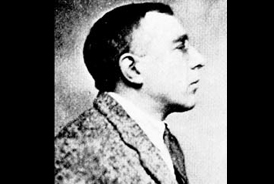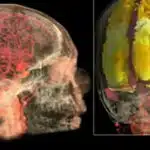by P.D. Ouspensky: The study of the methods used in this system by which man can come to a higher consciousness begins with the study of a new language. 
Language
This language is based on principles which you do not know yet; but as you go on with your study you will very soon begin to understand them. With this language it is possible to come nearer to truth and to speak with greater precision than we do now. Two people who understand this language will never misunderstand each other in simple things.
You have already heard certain expressions of this language, such as self-remembering, identifying, considering, and so on. It is very important to understand the different divisions the system uses and which are part of this language. Man is a very complicated machine but he can be studied in divisions. In ordinary language we do not use these divisions and so people do not understand one another.
Try to understand what I am saying, because it is rather difficult to express. If you take a town, you can understand it can be divided into north, south, east, and west; it can be divided into districts and quarters, and then divided into different streets. It can also be studied from the point of view of its population, for it has people of different nationalities, professions, classes, and so on. These divisions will not coincide with one another, so each must be studied separately. You cannot make a general map including all of them; you must make a series of different maps.
It is the same with man. For instance, I have already given you certain divisions. The first is the division of centres and functions, so that each man consists of four men, each living his own life in the same man, with his own associations, his own likes and dislikes. Then I showed you the division into different ‘I’s. This is a very useful division: man is not one, he is plural, a crowd, consisting of people who do not know one another and who fight with each other. This division into many ‘I’s was supplemented by the different roles a man plays in different circumstances. Then there was the division into knowledge and being — what a man knows and what he is. I have also given you the division of man into seven categories: man 1, 2, 3, 4, 5, 6 and 7.
Essence and Personality
Now we come to another, a quite different division, not parallel with any of the others — the division into essence and personality. Essence is what is born in you, personality is what you acquire. Essence is your own, personality is not your own. All man’s inner life, all his perceptions and reactions, are divided into those two parts. There are certain things which are born with you — such as certain physical features, state of health, certain kinds of predispositions, inclinations, tendencies, and so on. They belong to essence. Personality is what you acquire in the course of your life: views, opinions, words.
From the point of view of ordinary psychology the division of man into personality and essence is hardly comprehensible. It is more exact to say that such a division does not exist in psychology at all.
A small child has no personality as yet. He is what he really is. He is essence. His desires, tastes, likes, dislikes, express his being such as it is. But as soon as so-called ‘education’ begins, personality begins to grow. Personality is created partly by the intentional influences of other people, that is, by ‘education’, and partly by involuntary imitation of them by the child itself. In the creation of personality a great part is also played by resistance to people around him and by attempts to conceal from them something that is his own or real.
Essence is the truth in man; personality is the false. But in proportion as personality grows, essence manifests itself more and more rarely and more and more feebly and it very often happens that the essence of a grown-up man, even that of a very intellectual and, in the accepted sense of the word, highly ‘educated’ man, stops on the level of a child of five or six. This means that everything we see in this man is in reality not his own. What is his own in man, that is, his essence, is usually manifested only in his instincts and in his simplest emotions.
There are cases, however, when a man’s essence grows in parallel with his personality. Such cases represent very rare exceptions, especially in the circumstances of cultured life. Essence has more chances of development in men who live nearer to nature in difficult conditions of constant struggle and danger.
But as a rule the personality of such people is very little developed. They have more of what is their own, but very little of ‘what is not their own’, that is to say, they lack education and instruction, they lack culture. Culture creates personality and is at the same time the product and the result of personality. We do not realise that the whole of our life, all we call civilisation, all we call science, philosophy, art, and politics, is created by people’s personality, that is, by what is ‘not their own’ in them.
The element that is ‘not his own’ differs from what is man’s ‘own’ by the fact that it can be lost, altered, or taken away by artificial means.
Experimental Verification
There exists a possibility of experimental verification of the relation of personality to essence. In Eastern schools, ways and means are known by the help of which it is possible to separate man’s personality from his essence. For this purpose they sometimes use hypnosis, sometimes special narcotics, sometimes certain kinds of exercises. If personality and essence are for a time separated in man by one or another of these means, two beings, as it were, are formed in him. These beings speak in different voices, have completely different tastes, aims, and interests, and one of these two beings often proves to be on the level of a small child.
Continuing the experiment further it is possible to put one of these beings to sleep, or the experiment may begin by putting to sleep either personality or essence. Certain narcotics have the property of putting personality to sleep without affecting essence. And for a certain time after taking this narcotic a man’s personality disappears, as it were, and only his essence remains. And it happens that a man full of the most varied and exalted ideas, full of sympathies and antipathies, love, hatred, attachments, patriotism, habits, tastes, desires, convictions, suddenly proves quite empty, without thoughts, without feelings, without convictions, without views. Everything that has agitated him before now leaves him completely indifferent. Sometimes he sees the artificiality and the imaginary character of his usual moods or his high-sounding words; sometimes he simply forgets them as though they had never existed. Things for which he was ready to sacrifice his life now appear to him ridiculous and meaningless and unworthy of his attention. All that he can find in himself is a small number of instinctive inclinations and tastes. He is fond of sweets, he likes warmth, he dislikes cold, he dislikes the thought of work, or on the contrary he likes the idea of physical movement. And that is all.
Work on Oneself
Sometimes, though very seldom, and sometimes when it is least expected, essence proves fully grown and fully developed in a man, even in cases of undeveloped personality, and in this case essence unites together everything that is serious and real in a man. But as a rule a man’s essence is either primitive, savage, and childish, or else simply stupid. The development of essence depends on work on oneself.
A very important moment in the work on oneself is when a man begins to distinguish between his personality and his essence. A man’s real ‘I’, his individuality, can grow only from his essence. It can be said that a man’s individuality is his essence, grown up, mature. But in order to enable essence to grow up, it is first of all necessary to weaken the constant pressure of personality upon it, because the obstacles to the growth of essence are contained in personality.
If we take an average cultured man, we shall see that in the vast majority of cases his personality is the active element in him while his essence is the passive element. The inner growth of a man cannot begin so long as this order of things remains unchanged. Personality must become passive and essence must become active. This can happen only if buffers are removed or weakened, because buffers are the chief weapon by the help of which personality holds essence in subjection.
As has been said earlier, in the case of less cultured people essence is often more highly developed than it is in cultured man. It would seem that they ought to be nearer the possibility of growth: but in reality it is not so, because their personality proves to be insufficiently developed. For inner growth, for work on oneself, a certain development of personality as well as a certain strength of essence are necessary. Personality consists of rôles, and of buffers resulting from certain work of the centres. An insufficiently developed personality means a lack of rôles, that is, a lack of knowledge, a lack of information, a lack of the material upon which work on oneself must be based. Without some store of knowledge, without a certain amount of material ‘not his own’, a man cannot begin to struggle with his mechanical habits, simply because there will be no reason or motive for undertaking such work.
It does not mean that all the ways are closed to him. The way of the fakir and the way of the monk, which do not require any intellectual development, remain open to him. But the methods and the means which are possible for a man of a developed intellect are impossible for him. Thus evolution is equally difficult for a cultured or an uncultured man. A cultured man lives far from nature, far from natural conditions of existence, in artificial conditions of life, developing his personality at the expense of his essence. A less cultured man, living in more normal and more natural conditions, develops his essence at the expense of his personality. A successful beginning of work on oneself requires the happy occurrence of an equal development of personality and essence. Such an occurrence will give the greatest assurance of success.
If essence is very little developed, a long preparatory period of work is required, and this work will be quite fruitless if a man’s essence is rotten inside or if it develops some irreparable defects. Conditions of this kind occur fairly often. An abnormal development of personality very often arrests the development of essence at such an early stage that the essence becomes a small deformed thing. From a small deformed thing nothing else can be got.
Walking Dead
Moreover, it happens fairly often that essence dies in a man while his personality and his body are still alive. A considerable percentage of the people we meet in the streets of a great town are people who are empty inside, that is, they are already dead.
It is fortunate for us that we do not see and do not know it. If we knew what a number of these dead people govern our lives, we should go mad with horror. And indeed people often do go mad because they find out something of this nature without the proper preparation; that is, they see something that they are not supposed to see. In order to see without danger, one must be on the way. If a man who can do nothing sees the truth, he will certainly go mad. Only this rarely happens. Usually everything is so arranged that a man can see nothing prematurely. Personality sees only what it likes to see and what does not interfere with its life. It never sees what it does not like. This is both good and bad at the same time. It is good if a man wants to sleep, bad if he wants to awaken.
It is easier to understand the difference between essence and personality if you find some examples. Although the two are always mixed in life, it is easier to distinguish personality and essence in other people than in oneself, because personality changes very often with a change of conditions, but essence remains the same. This division is very important to understand, because many things that we speak about in man refer to essence, while others refer to personality.
Essence can be added to and developed, but only if personality becomes educated and ceases to press upon essence. Personality is too heavy, too strong; it surrounds essence like a shell, so nothing can reach it directly; everything has to pass through personality. Essence cannot grow in these conditions; but if personality becomes more transparent, impressions and external influences will penetrate through it and reach essence; then essence will begin to grow.
People talk of a ‘strong’ personality. But what does this mean? It means a strong influence of what is not your own, of what you have acquired — other people’s words, other people’s views and theories. They can form such a thick crust around essence that nothing can penetrate it to reach you, to reach what you really are.
Defensive Insurance
Before attempting to destroy this shell of personality, or breaking it, it is necessary to prepare other defences. If for some reason this shell falls off, people find themselves defenceless against many very difficult influences which they cannot control. Personality keeps you from certain distant influences; if you weaken it, you will be under many influences which could not reach you before, so you will have even less control than you have now.
But there are many things which we could control and do not control now. This is the right way of thinking about it. A simple example would be atmospheric changes or the change of seasons — they affect essence very much, and if one is surrounded by personality, one is less affected. Change of seasons is a very serious thing for people whose essence is more open to influences. I give you this simply as an example of things that people do not take into account and about which they have no idea. There are many other things: for instance old books on magic warn people about how dangerous this is and how one must be prepared beforehand; and in many cases they are right, because the opening up of essence may be good, but it may be accompanied by many dangers. Personality is created on many wrong bases, but it is also a kind of defence.
In ordinary life, we do not even know the existence of these two principles. In self-study one is told of this division, but essence and personality are so mixed that for a long time this division remains theoretical for, except in extreme cases, it is impossible to say which is which by observation. Then, as one works, one gradually begins to see that one thing is more ingrained, goes deeper, another less. In this way, little by little, one can see essence. When personality is educated and becomes less heavy, many qualities pass into essence and become permanent. This is how essence develops. In personality things jump up and disappear, but what passes into essence remains.![]()
Developing Essence Through Personality
Essence must be distinguished from being. Being is life; it is a process. Essence is an object.
Personality must not have too much freedom. It must be educated in a certain way, act according to certain principles, work in a certain direction. At present our personality is all wrong. There is too much lying, deceiving oneself, imagination, negative emotions. All these things must be put right; only then can the machine work as it should. We have to work through personality; for a long time essence can have no practical meaning for us. If we begin to work on it consciously, certain things will influence essence, but not at once.
If you work, if you study, you will gradually change your personality and your work on personality will reflect on essence. Either you control personality, or personality is controlled by thousands of different ‘I’s, each of whom has its own ideas, its own views and desires. We must realise what an enormous work it is to acquire unity when, as we are now, one part decides to work and another does not know about it or does not agree. When you have educated your personality, when it has become obedient to your aim and begins to serve it, then it is useful and right. But if you have an aim in a certain part of you and your personality works against this aim then, naturally, it is not right.
If you observe and find things that you do not like about yourself, it is good. The part that wishes to know, to work, to change, is also part of personality. There may be many things that are wrong in our personality, and these things have to be studied and eliminated. Personality is developed by study and by diminishing useless functions. Through this it becomes better and cleaner.
In school conditions, essence must be more important than personality. If personality dominates it too much, development becomes impossible — because real development is in essence, and if personality hangs too heavily on it essence cannot breathe. But personality is also very important. The possibility of change is really very complicated, because it consists of many things. There must be a certain quality in essence, for if this quality does not exist, nothing is possible; there must be certain material, certain acquisitions in personality; and there must be certain circumstances.
To understand how personality can influence essence, let us look at the intellectual centre. Its contents are not born with us — thoughts, ideas, convictions, opinions are all acquired. Suppose in your personality you come to a certain conclusion and you find yourself by observation to have some disagreeable habit or some kind of unpleasant emotion that always comes up in certain circumstances. You realise that it is not useful in any sense: it wastes energy and makes your life more difficult. You find that this negative state feeds on self-justification — that in your ordinary habitual state you always justify it and think it is somebody else’s fault, or say that you did not mean it, or that people do not understand you, or something like that. This allows it to exist. If you change your point of view, if you cease justifying it and create instead a permanent idea in yourself that this condition is wrong, that it is not justifiable, then this point of view may eventually become permanent and absorbed in essence.
There may be defects in essence, but personality must change first. Essence does not change so easily. Changing features in essence is very difficult work; it needs knowledge and sufficient energy, and we are weak and have no knowledge. It is done only when it is necessary, and only with the help of school methods.
Personality can be controlled by mind. That is all that can be expected. In your mind you formulate your aim, and personality must work in accordance with this aim.
Suppose one has a lazy essence and one wants to awaken. One can change it after a long period of self-study, but one must have help — school help. So it is lucky for us that work on essence comes second, that we have to start with work on personality. But by working on personality we already work to a certain extent on essence. Sleep, awakening, consciousness — all this does not refer to personality: it refers to essence. So actually you work on essence from the very beginning and personality, by changing, will produce a certain pressure on essence and change it too.
Heredity Unimportant
Heredity practically does not exist in man. Wrong qualities may be hereditary, but good qualities cannot be inherited. Animals are under different laws from man; in them good and bad qualities are equally transmitted, but in man what may be transmitted, apart from physical qualities, are only features of degeneration. Otherwise there is nothing to transmit. Physical features can be inherited, but not features like self-consciousness. Essence cannot be inherited.
Even in essence, there may be a certain disposition towards negative emotion, but we can take it that it all refers to personality, because if there were a really strong tendency to negative emotion in the essence, it would almost mean insanity.
The level of being depends on growth in essence, and this is the relation between them. Only you cannot measure being in that way, for the division into essence and personality is at present merely theoretical. But it is useful to remember that these two principles are in you because, as I said, if you do not know this division it will prevent you from understanding certain other things you will hear.
Magnetic Centre
One thing you must realise about essence and personality is that essence is one, whereas personality consists of several groups of ‘I’s. So we can say that we have not a personality but personalities in the plural, for there are five or six, sometimes ten personalities in one person. Magnetic Centre is also in personality, for we are not born with it — it is created in life. It is a group of ‘I’s which can, to a certain small extent, control other groups of ‘I’s. Some of these personalities are all right, but some will always be in your way and have to be controlled or eliminated.
Desire to awaken is connected with magnetic centre. You will remember that in Lecture 5 I spoke about magnetic centre and the different influences under which man lives. This brings us to the question of why some people are interested in these ideas, while others are not; what creates this desire to know, the energy to seek; why people who live in similar conditions are so different, for one person is satisfied with ready-made theories and clichés, while another wants to find truth for himself. What is it that explains this difference in people in relation to new ideas, for some people to meet with the possibility of acquiring new knowledge and not be interested, while for others it may change the whole trend of their lives?
People come to these and other similar ideas in different ways. Some understand something, others take them on an ordinary level. The cause of this difference is that man lives in mechanical life under two kinds of influences. It is connected with the idea explained in the beginning, that man is a machine controlled by external influences, by things around him. He may be receptive to one kind of influence and not receptive to another kind.
Most of these influences are created in life itself, by people like himself. But among them, mixed with them, there are other influences which are not created in life but come from a different source, from people of a higher mind. They come in the form of religions, science, philosophical systems, esoteric doctrines, art, all sorts of teachings, and so on. They cannot be distinguished outwardly from influences of the first kind, so it depends on the individual man whether he discriminates between them or not. Man can live under influences A, that is, influences of the first kind, and disregard influences B, not being interested in them. But if he is interested in these influences of the second kind and has absorbed them in sufficient quantity, a certain process takes place in him. Results of these influences B, the memory of them, collect separately in a special compartment and form what is called a magnetic centre.
Magnetic centre is a combination of certain interests and emotional associations which makes him turn in a definite direction. It is a certain cycle of ideas and a certain cycle of emotions. This is the origin of interest in this kind of ideas.
True or False?
Magnetic centre is the faculty that enables man to discriminate between truth and falsity. Men are machines, there is no question about that; only they are not quite the same machines as an engine or something of that kind [e.g., a computer — Ed.]. You have heard already that man can live in four states of consciousness, but that in ordinary life he lives only in two. These two other states of consciousness can be developed in man, but they cannot develop by themselves; they have to be developed through knowledge and effort. And the faculty that helps man to understand and discriminate is the magnetic centre.
Now we are speaking about man before he meets a school. He lives in life under ordinary conditions. Conditions may be very different but, in any conditions, he lives under the two kinds of influence I am speaking about.
Influences A are all interests in life — struggle for existence, desires, excitements, possessions, riches, amusements, and so on. They are created without intention and are mechanical both in their origin and in their action.
But at the same time man also lives under influences originally created in schools but thrown into the general turnover of life. These influences B are, as it were, a life apart. They are arranged for a certain purpose, to serve as ‘lights on the way’. The rest depends on man himself. All his interests may concentrate only on influences of the first kind, or part of him may remain interested in influences created in life while another part may be interested in this other kind of influences. If a man notices and studies them, they may accumulate in him. The memory of these interests may begin to collect in him from a very early age and form a certain group of ‘I’s out of the many ‘I’s in him. After some time this group of ‘I’s, magnetic centre, begins to control and determine his general direction in life and the trend of his interests or a part of his interests. Magnetic centre means looking for definite things and being on the level of certain things.
But if a man does not notice these influences, they will produce no effect. This is why people are so different. One person may be very intellectual, may have studied philosophy, art, and so on, and at the same time he has no chance if he has no magnetic centre. If he comes in contact with a school he will not recognise it. And another man may be insufficiently educated, may not have read so much, may not know so many words, yet if he meets a school he may become interested at once.
Change Through Interest
It is a combination of what we are born with and outside circumstances that makes us what we are; it is all mechanical, all under the law of accident. It is useless to deny that people are born different and that we cannot change — in any case at the beginning. We have to take it for granted that people have different capacities, but not for awakening; this is where people make a mistake. Awakening does not depend on what is born; it depends on magnetic centre, and magnetic centre depends on what one is interested in. One person is interested in one thing and another in another thing, but on what that depends we do not know and it will not help us to investigate this question because it will be only theories. In our state of consciousness we can know only some things and we must concentrate on the things we can know without wasting time on the things we cannot know.
Magnetic centre is a certain combination of interests, and not only of interests but also of ideas that a man has acquired, a certain knowledge, a certain understanding. It all enters into the magnetic centre. It is mechanical like everything else: but influences B are different in their nature, although in the beginning they come mechanically. This is not important. The important point is whether or not there is interest in B influences. This is how out of mechanicalness comes struggle with mechanicalness. Magnetic centre helps a man to see, understand, and distinguish certain things. A man cannot appreciate the difference between ideas, he cannot say which is better and which worse, which suits him, which does not suit him, without the help of magnetic centre. Accumulation of knowledge does not help to create a magnetic centre; magnetic centre is good taste with the aid of which a man can have a new evaluation of the ideas that come his way. The question is, in this stream of life, to distinguish the two kinds of influences, to feel the difference between them. If a man does not feel it, if he takes influences B in the same way as influences A, then they produce the same effect and magnetic centre is not formed.
Danger!
Then there are many dangers, because some of these ideas that make up the second kind of influences are so distorted that they can form a wrong magnetic centre. Magnetic centre must be very uniform and very sane to lead somewhere, otherwise it will only be an embarrassment.
Influences B are always there. They come originally from the inner circle of life, from that part of life which has become free from the law of mechanicalness, but they may pass through many stages before they reach man and may be so distorted and so disguised that it is difficult to recognise them, just as it is difficult to recognise ideas of an esoteric origin which come to us in the form of legends and myths, or even superstitions. Sometimes they have an esoteric origin and then they are influences B.
Under influences B, one does not think about ‘Work’. If one is interested in influences B just for one’s own personal advantage, profession, fame, or something like that, then one loses all the profit one can get from them. But if a man values them for themselves, not selfishly, not only for his own gain, if he is interested in their meaning, then he may get something from them.
Definitions are very difficult and mostly wrong, for our ordinary language has so many different associations that sometimes a more precise definition spoils the possibility of understanding. For instance you can say, although I do not guarantee it will always be right, that the chief characteristic of influence A is that it is always selfish, whereas influence B is unselfish. But people understand these words so differently that it does not convey much. You can also say that influences A need identification and influences B can exist without identification, and that if there is identification with influences B, it spoils them. In fact, the more identification there is with influences B, the more they become influences A. But all this is not sufficient to explain the difference between them.
We should not try to dispense with influences A. They may be quite legitimate interests in life. If we do not disappear in them, they are quite harmless. One has to accept everything that comes, only not identify. Influences A are not dangerous in themselves; only identification is dangerous. So there is no question of dispensing, there is only the question of having some interest in influences B, of not being entirely under the power of influences A. If people have an interest in these influences B, they have a magnetic centre; if not, they have no magnetic centre.![]()
School and Influence C
After some time, with the help of magnetic centre, a man may find a school, or if he comes near one he may recognise it. But if he has no magnetic centre he will not notice it or will not be interested. And if he meets a school or a man who transmits another kind of influence, influence C, magnetic centre helps him to recognise this new influence and absorb it. If he has not first absorbed enough influences B and so has no magnetic centre, or if his magnetic centre is wrong or too weak, a man will not recognise influence C. Or he may meet a wrong school, have wrong instruction and instead of becoming better, become worse; instead of acquiring, lose.
Influence C differs from influences B in that it is conscious instead of being accidental both in its origin and in its action, whereas influences B are conscious in their origin but accidental or mechanical in their action. Influence C is school influence.
There is no general rule about age, but one must have enough experience, enough temptations from influences A, and enough time to accumulate influences B: otherwise influence C will serve as influence B — in other words, it will do the work of a more simple instrument and will not have its full value. When people have tried and have realised that ordinary means do not satisfy them, do not give them what they want, they value influences C. But if they come to school too soon, they take influence C on the same level as the other influences and influences C lose their power. It is very important to understand that.
Any influence C you recognise may not necessarily be right for you. It depends on your magnetic centre. If magnetic centre is right, you are bound to recognise the right things; if it is wrong, you may find quite a wrong school. This happens every day. Why do so many quite unfounded and wrong schools exist, with no material whatever? Because people have a wrong magnetic centre. The case is possible, for instance, when a man with a wrongly formed magnetic centre may come upon a school which pretends to be connected with esotericism, while in actual fact no such connection exists. In this case influences which should have been influences of the third kind become influences of the first kind, that is, leading nowhere. Only results will tell. But even if people have wrong results, if they have a wrong magnetic centre, they persuade themselves that the results are good. One can deceive oneself about anything.
Generally speaking, there is very little chance of finding a right school and many possibilities of wrong schools, because a school must have influences C, that is, ideas that come direct from higher mind. What does ‘direct’ mean? It means coming not through books, not through ordinary learning accessible to everybody. These ideas must come from another school, and to that school again from another school, and so on, until one comes to the original source. If there are no ideas of that kind, it is only an imitation school.
This does not mean that a school must be directly connected with the source, but it must at a certain time have received this kind of ideas, and then people can work on them. But if it has no ideas different from ordinary ideas, it is not a school; then, at best, it is a school on the level of B influences, that is, a philosophical or scientific school. It can be called a ‘school’ only if, through it, one may be able to find the direction towards becoming man Number 4(although there is no guarantee of attaining it). So, through the school, you can find the right direction only if you have a right kind of school. If you come to a wrong kind of school you lose what you can learn by yourself.
Magnetic centre becomes that part of a man which is interested in school work. It lives on influences B, but now it receives better material, more concentrated knowledge than before. Besides, many things a man has learned before may be useful to him when he has joined a school, particularly after he has thrown away all that is useless. In ordinary life man does not know what to learn and what to discard. For instance, many things in which people believe have no meaning, but a man often cannot recognise this and takes them all on the same level — both those that have meaning and those that have not. But in studying himself according to school methods he learns to recognise imaginary values in himself and, through this, to discover imaginary values outside himself. And then, much later, after long work, the group of ‘I’s, or the personality which was the magnetic centre, develops into a ‘deputy steward’.
Deputy Steward
When the magnetic centre is right and a man meets with true influence C, it begins to act on the magnetic centre. And then, at this point, man becomes free from the law of accident. The bigger the magnetic centre, the more man is free from the law of accident. This means that he becomes free from this law only at the point through which he is connected with influences C.
What was magnetic centre before you met the work may later become deputy steward, which means a personality that conquers other personalities and leads them: but that does not come at once. Deputy steward is much higher than magnetic centre. Magnetic centre forms itself from B influences, while deputy steward is formed from one’s efforts. Magnetic centre is the seed, the germ, of deputy steward.

















































